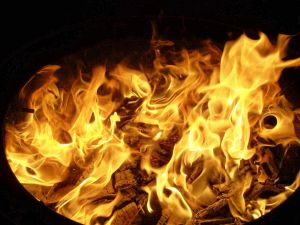Too Darn Hot
by Chris Makler It’s 85 degrees and sunny on this October day in the Bay Area, and this morning’s review of the New York Times brings a trio of stories related to heat: the tragedy of the fires raging in Southern California; a long article in the Magazine section on decreasing supplies of fresh water due to global warming; and a really interesting article on the effect of lower water levels in the Great Lakes on shipping. There are lots of good economic applications in all three of these articles.
It’s 85 degrees and sunny on this October day in the Bay Area, and this morning’s review of the New York Times brings a trio of stories related to heat: the tragedy of the fires raging in Southern California; a long article in the Magazine section on decreasing supplies of fresh water due to global warming; and a really interesting article on the effect of lower water levels in the Great Lakes on shipping. There are lots of good economic applications in all three of these articles.It’s clear that there are winners and losers from warming. For example, the people who lose their homes in Southern California—and their insurance companies—are clearly losers. But others win—think of the windfall that’s about to benefit construction companies in Southern California, which were suffering recently because of the downturn in the housing market. Don’t the fires create rebuilding jobs for them? And don’t they, in turn, spend that money, benefiting others? Could we view the fires as a stimulus to the economy? Maybe there’s insufficient drought in the world after all!
If this argument rings false, that’s because it is. To see why, read one of the most brilliant three-paragraph synopses of economic theory ever written: the first application in Economics in One Lesson by Henry Hazlitt. (Clicking to the next page, “The Blessings of Destruction,” is also worthwhile. Oh, heck, just read the whole book—it will take you an hour.)
Discussion Questions
1. Suppose we assume that global warming is caused by humans, and that it is an example of the tragedy of the commons: everyone suffers because of global warming, but nobody has an individual incentive to stop the behavior that causes it. As Economics in One Lesson demonstrates, Hazlitt was skeptical of government interference in markets beyond the enforcement of property rights. Can you think of any appropriate responses to global warming that involve little to no government interference?
2. Suppose we assume instead that global warming is not caused by humans, but that humans can do things—for example, produce less carbon dioxide—to reduce its effects. How does that change your response to question 1? Does it, in fact, change your response? Why?
3. The article on the Great Lakes says that “for every inch of water that the lakes lose, the ships that ferry bulk materials across them must lighten their loads by 270 tons—or 540,000 pounds—or risk running aground, according to the Lake Carriers’ Association, a trade group for United States-flag cargo companies.” What effect is this likely to have on the structure of the shipping market in the short run and the long run?
Labels: Efficiency, Externalities, Market Failure



0 Comments:
Post a Comment
<< Home